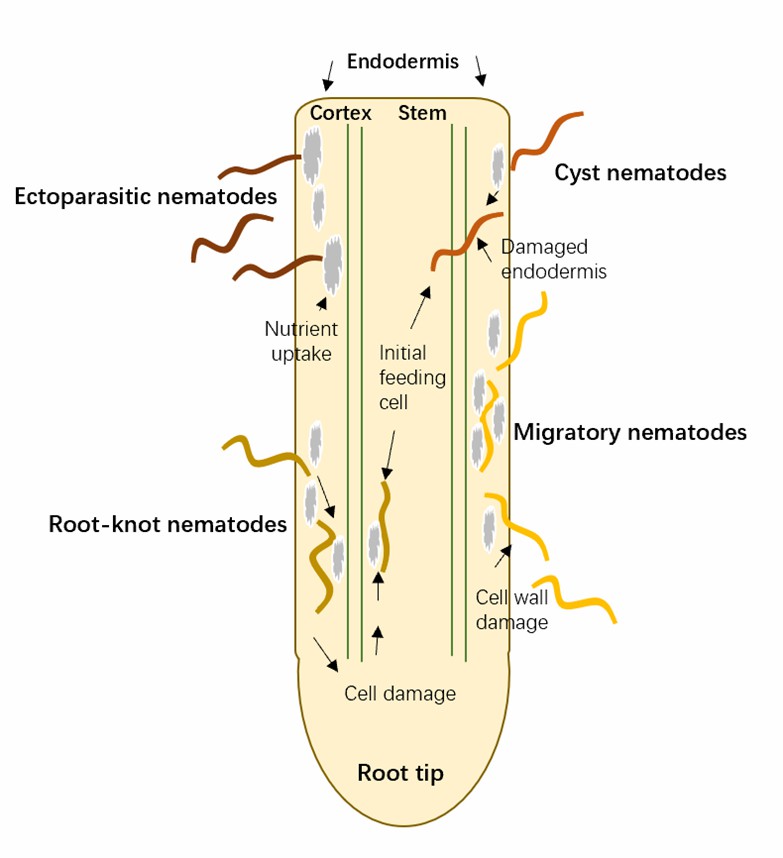Plant nematodes are obligate biotrophs that feed on almost all plant tissues, including flowers, roots, stems, and leaves, but most species of plant parasitic nematodes feed on roots. Nematode invasion and feeding cause tissue damage which may, in turn, lead to the activation of host basal defense responses. Regardless of their feeding habits, most plant nematode species must penetrate the cell wall to access the cell interior for feeding. Therefore, plants have evolved a complex defense system. Preformed elements of defense, such as cell walls and their reinforcements, are the first barrier for any kind of invaders.
Lifeasible provides services to customers worldwide in the field of analysis for the reinforcement of plant cell walls. Our platform has advanced facilities and professional experts to support related research. Here, we provide specific services according to the customers' needs.
 Fig.1 Model of four different migration habits of plant-parasitic nematodes in a root.
Fig.1 Model of four different migration habits of plant-parasitic nematodes in a root.
Lifeasible provides cost-effective, high-quality, and comprehensive services to our clients worldwide. We provide our clients with direct access to our experts and prompt response to their inquiries. If you are interested in our services or have any questions, please feel free to contact us or make an online inquiry.
Lifeasible has established a one-stop service platform for plants. In addition to obtaining customized solutions for plant genetic engineering, customers can also conduct follow-up analysis and research on plants through our analysis platform. The analytical services we provide include but are not limited to the following:
July 13, 2024